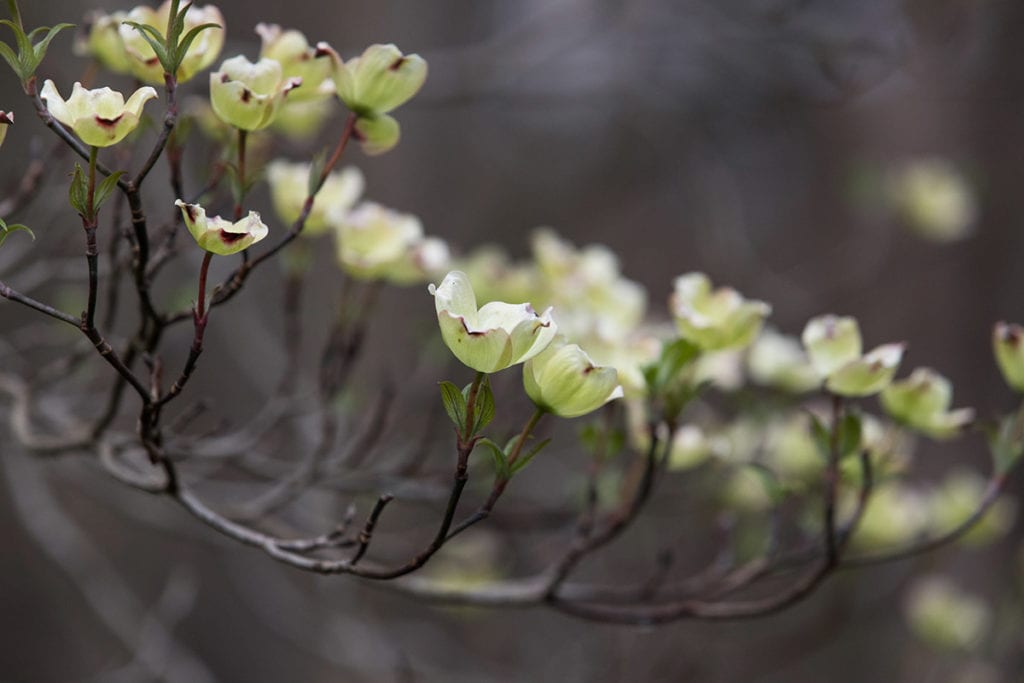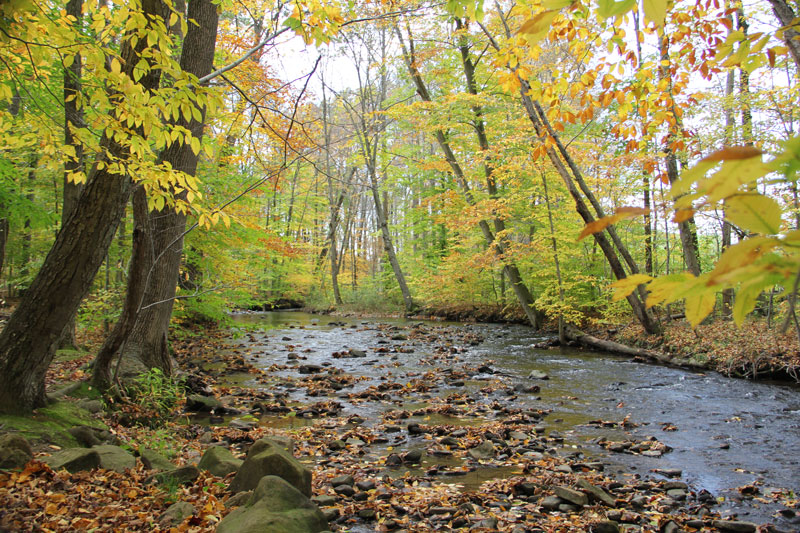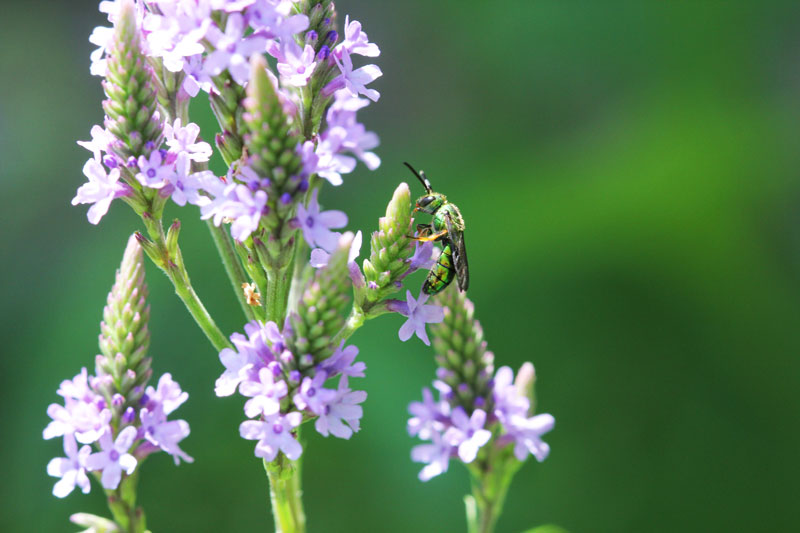Carnegie Museum of Natural History
One of the Four Carnegie Museums of Pittsburgh
Powdermill Nature Reserve, the environmental research center of Carnegie Museum of Natural History in Rector, Pennsylvania, has been dedicated to its mission of research, education, and conservation for more than 60 years. It is a place for scientists, students, and families who are interested in the natural world. Researchers on staff and from around the world conduct diverse long- and short-term scientific studies in forest ecology, herpetology, botany, invertebrate zoology, and ornithology.
The research programs at Powdermill take advantage of the Reserve’s unique combination of the wide variety of habitats found in the Allegheny Mountains. Powdermill is a member of the Organization of Biological Field Stations (OBFS) and the Association of Nature Center Administrators (ANCA).

Research Inquiries
Powdermill has research staff conducting studies in avian ecology, forest succession, stream ecology, and more. A detailed vegetation survey of the entire property is available to visiting researchers as baseline data, and there is a weather station that records most standard parameters continuously. Powdermill is part of Carnegie Museum of Natural History and thus can draw on considerable expertise from the museum staff. Roughly 30 research associates from across the United States and internationally conduct studies on a wide range of topics. Powdermill actively seeks new research partners and graduate students to undertake field studies on the property utilizing our new facilities.

Research Facilities
The Reserve offers a LEED Gold certified headquarters building with two furnished classrooms; user-friendly audio-visual equipment; a spacious deck overlooking the Powdermill woods; two exhibition galleries focusing on our avian research and stream ecology; a modern conference room; outdoor teaching area; and catering kitchen. These areas are ideal for meetings, workshops, and conferences at a reasonable rental charge. An innovative Marsh Machine wastewater treatment system ties in with the Living Stream aquarium demonstrating that the organisms that live in our exceptional value stream can also live in the system-treated water. Several well-equipped cabins are available at a nominal charge to visiting researchers, university groups, or participants in conferences in the headquarters building. We have a modern GIS lab that can provide support to visiting researchers. The Powdermill Avian Research Center maintains a permanent bird banding program with a massive database available for baseline data and a bioacoustics lab specializing in the study of nocturnal flight songs. There is some desk space available to long-term researchers. Limited high-speed Internet access is available.
Starting Research at Powdermill
Powdermill offers the advantage of long-term stability for multi-year projects and the ability to undertake controlled manipulations. Populations of plants or animals can be permanently marked and accessed as needed with little concern for external disturbance. Most of the property is closed to the public and reserved for research only by select, professional researchers. A detailed vegetation map of the entire 2,200-acre property is available to collaborators and visiting researchers.

Habitats
The reserve has typical vegetation of the mid-Appalachian region, roughly 400-640 m above sea level. Most was logged in the late 1880s to early 1920s and has been uncut since then. The forest is dominated by oaks and maples, with substantial populations of beech, hickory, tulip tree, and some hemlock. The known flora of the reserve comprises more than 850 species in 129 families. There are also roughly 200 acres of old field habitats with diverse and representative vegetation. Habitats present a mosaic of subtle differences due to variations in land use in the first half of the 1900s. The property has several forested streams with healthy aquatic ecosystems and in other areas impacted by old coal mines. The bird banding station includes several small ponds and areas of dense, shrubby secondary growth. Part of the property borders the Forbes State Forest and there are other researcher-accessible properties nearby.
Powdermill offers a large area of healthy and representative forest and old field habitats. These habitats contain diverse fauna and many opportunities for research and long-term studies. Our location is convenient to large urban areas of the middle Atlantic region and dozens of universities are within several hours drive. Costs of working at Powdermill are nominal and opportunities are numerous.

